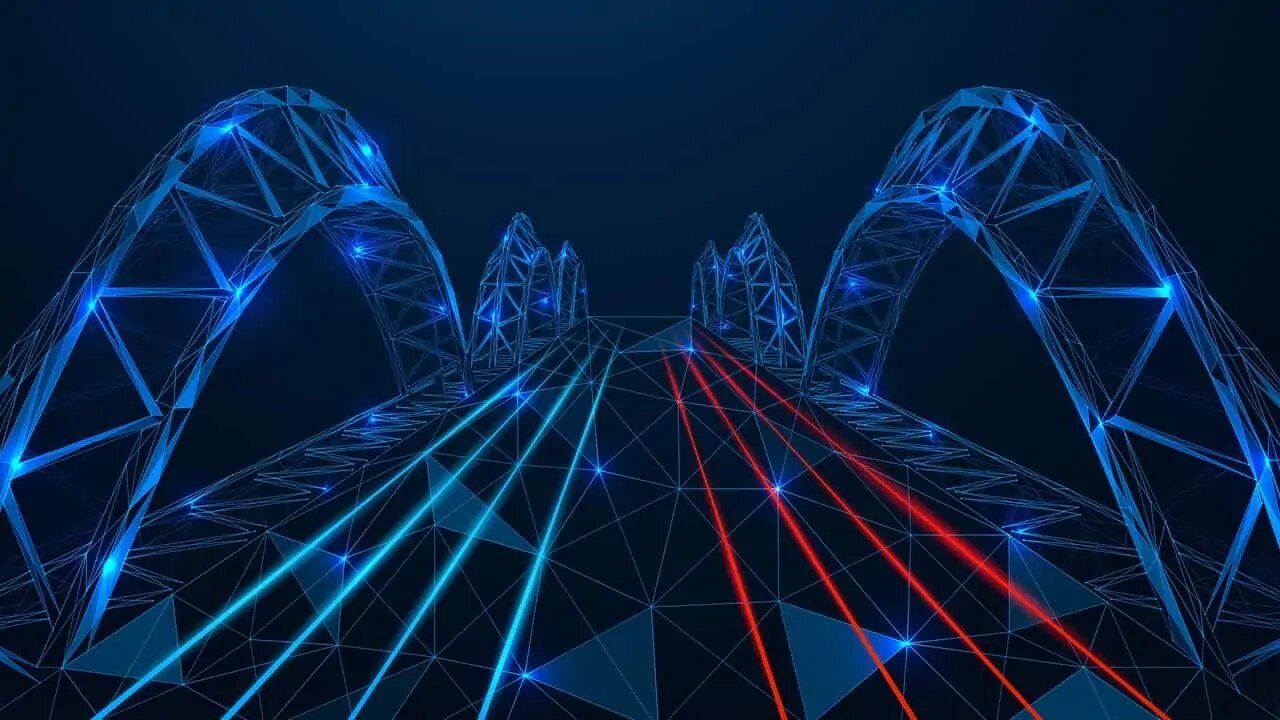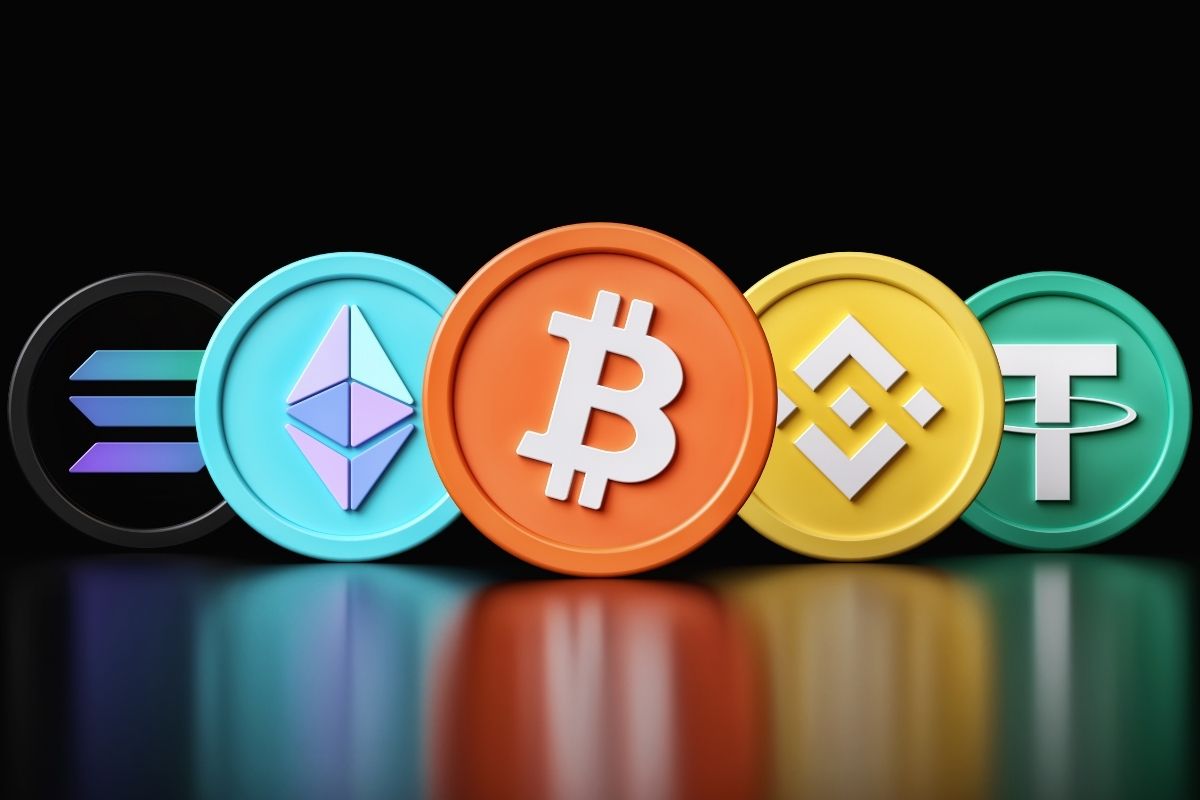Introduction
Welcome to the world of cryptocurrencies, where the technology is constantly evolving and new innovations are emerging. One such innovation that has gained significant attention in recent years is the concept of oracles. In the realm of crypto, an oracle is not a mystical being or a fortune teller, but rather a fundamental component that plays a vital role in connecting the blockchain with the real world.
So, what exactly is an oracle in the context of cryptocurrencies? Put simply, an oracle acts as a bridge between smart contracts on the blockchain and external data sources. It provides the necessary information to execute smart contracts based on real-time data, enabling decentralized applications (DApps) to interact seamlessly with the outside world.
Oracles work by fetching and verifying data from various sources such as APIs, web scraping, IoT devices, and even other blockchains. Once the data is obtained, it is processed and made available to smart contracts, ensuring that they have access to accurate and up-to-date information. This functionality is crucial as it enables smart contracts to make informed decisions and execute actions based on real-world events.
There are different types of oracles based on the level of decentralization and trust involved. Centralized oracles rely on a single source of truth, often controlled by a third-party entity. These oracles are widely used due to their simplicity and reliability, but they introduce a single point of failure and potential security vulnerabilities.
On the other hand, decentralized oracles leverage the power of multiple data sources and consensus mechanisms to ensure accuracy and reliability. These oracles employ techniques such as data aggregation, reputation systems, and consensus algorithms to validate incoming data and eliminate potential sources of manipulation or corruption.
The role of oracles in the crypto ecosystem cannot be overstated. They enable the seamless integration of blockchain technology with real-world applications, unlocking the potential for decentralized finance (DeFi), prediction markets, supply chain management, and many other use cases. Without oracles, smart contracts would be limited in their capabilities and unable to interact with external data.
However, despite their importance, oracles pose several challenges and risks. One of the main challenges is ensuring the security and reliability of the data obtained from external sources. Since oracles rely on data inputs that are beyond the control of the blockchain, they are susceptible to manipulation, hacks, and inaccuracies.
There have been instances where malicious actors exploited vulnerabilities in oracles, leading to significant financial losses. Therefore, building robust oracle systems that prioritize security, privacy, and accuracy is of utmost importance.
Several prominent blockchain projects have recognized the significance of oracles and have developed their own solutions. Chainlink, Band Protocol, and Augur are some examples of projects that aim to provide decentralized oracle services, offering reliable and tamper-proof data feeds to the crypto ecosystem.
In the following sections, we will delve deeper into the functioning of oracles, explore the various types available, discuss their importance in the crypto space, and examine the challenges and risks associated with them. Additionally, we will provide an overview of some of the notable oracle projects shaping the future of decentralized finance and beyond.
What is an Oracle in Crypto?
When it comes to cryptocurrencies, an oracle refers to a vital component that facilitates the communication between a blockchain and the real world. In simpler terms, it acts as a mediator that connects smart contracts on the blockchain with external data sources. Smart contracts are self-executing agreements that run on blockchain networks and carry out predefined actions when certain conditions are met.
However, smart contracts alone lack the ability to access real-time information or interact with external data sources. This is where oracles come into play. An oracle retrieves information from off-chain sources such as APIs, websites, or IoT devices, and feeds it to the smart contracts in a format they can understand.
Think of an oracle as a data carrier that fetches and verifies real-world information, and then delivers it to smart contracts so that they can make informed decisions and execute actions accordingly. Just as the oracle in ancient times served as the intermediary between humans and the divine, in the crypto world, oracles serve as the intermediary between the blockchain and the real world.
Oracles play a crucial role in enabling blockchain applications to interact with the outside world. They are the essential link that allows decentralized applications (DApps) to access data that is not natively available on the blockchain. Through oracles, DApps can incorporate external data, such as market prices, weather conditions, and real-time events, into their functionalities.
By utilizing oracles, developers can create blockchain-based applications that have the capability to respond to real-world changes and conditions. For example, an insurance smart contract could automatically execute a payout to a policyholder if an oracle receives data confirming the occurrence of a specified event, such as a flight delay or damage to a property.
Moreover, oracles are not limited to providing simple data inputs. They can also be utilized to execute complex computations or off-chain processes. This opens up a wide range of possibilities for decentralized applications, including advanced financial instruments, prediction markets, supply chain management systems, and more.
Overall, oracles play a critical role in bridging the gap between the immutable and transparent world of blockchain and the dynamic and ever-changing real world. They empower blockchain applications to incorporate real-time data and external information, expanding the realm of possibilities for decentralized applications.
How do Oracles work?
To understand how oracles work, let’s take a closer look at their functioning within the crypto ecosystem. Oracles act as intermediaries between smart contracts on the blockchain and external data sources, ensuring the flow of real-time information into the blockchain network.
The process typically involves three main steps:
- Data Retrieval: Oracles fetch data from external sources such as APIs, websites, IoT devices, or other blockchain networks. This data can include price feeds, weather conditions, sports scores, or any other relevant information needed by the smart contract.
- Data Verification: After retrieving the data, the oracle verifies its authenticity and integrity. This step is crucial to ensure that the data is accurate and has not been tampered with. Oracles employ various techniques to verify data, such as using multiple sources, consensus algorithms, cryptographic proofs, and reputation systems.
- Data Transmission: Once the data is validated, the oracle transmits it to the smart contract on the blockchain. The data is formatted in a way that the smart contract can process and understand. Smart contracts can then execute predetermined actions based on the received data.
However, the process of data transmission by oracles can vary depending on the type of oracle being used. There are generally three types of oracles:
- Software Oracles: These oracles are software-based and retrieve data from external sources through APIs or web scraping. They use predefined protocols to ensure data integrity and transmit the verified data to the smart contracts. Software oracles are often centralized, meaning they rely on a single trusted source of data.
- Hardware Oracles: Hardware oracles are physical devices that connect directly to external data sources. For example, an IoT device that provides real-time sensor data can act as a hardware oracle. These oracles ensure the data is captured directly from the source and can provide more reliable and tamper-proof data.
- Consensus-based Oracles: Consensus-based oracles leverage multiple sources of data to provide accurate and verified information to smart contracts. They use consensus algorithms to eliminate data outliers, ensure data integrity, and prevent manipulation. These oracles are considered more decentralized and secure as they rely on the collective agreement of multiple data sources.
It’s important to note that ensuring the security and reliability of oracles is a critical aspect. Oracles need to protect against potential vulnerabilities, hacks, or manipulation attempts. Secure coding practices, encryption, and data validation techniques are employed to mitigate these risks.
Additionally, oracles can implement reputation systems to assess the reliability and accuracy of data sources. These systems assign reputation scores to each data source based on their historical performance and accuracy. Smart contracts can then use these reputation scores to prioritize or filter data inputs.
Overall, oracles play a pivotal role in facilitating the integration of real-world data into blockchain applications. They act as trusted intermediaries that retrieve, validate, and transmit data to smart contracts, enabling the execution of complex actions and expanding the possibilities of decentralized applications in the crypto ecosystem.
Types of Oracles
In the world of cryptocurrencies, there are various types of oracles, each offering different levels of decentralization and trust. These types can be categorized based on the source of data, the validation method, and the level of centralization. Understanding these types will provide insights into the different approaches to obtaining and verifying data in the crypto ecosystem.
- Software Oracles: Software oracles are the most common type and rely on software programs to retrieve data from external sources. They often use APIs or web scraping techniques to access information from websites, databases, or other sources. Software oracles are relatively simple to implement and provide a convenient way to fetch data. However, they usually depend on a single trusted data source, making them more centralized and susceptible to manipulation or failures.
- Hardware Oracles: Unlike software oracles, hardware oracles utilize physical devices to connect directly to external data sources. These devices, such as IoT sensors or specialized hardware, capture real-time data and transmit it to the blockchain. Hardware oracles offer greater reliability and tamper-proof data as the information is obtained directly from the source. They are often used in scenarios where capturing real-world events or sensor data is crucial.
- Consensus-based Oracles: Consensus-based oracles aim to increase decentralization and reliability by aggregating data from multiple sources and reaching a consensus on the final result. These oracles use various consensus algorithms, such as voting or weighted averaging, to determine the most accurate data. By eliminating outliers and ensuring agreement among multiple sources, consensus-based oracles provide more robust and tamper-resistant data. They reduce the reliance on a single source, making them less prone to manipulation or failures.
- Authenticated Oracles: Authenticated oracles focus on verifying the authenticity of data by utilizing cryptographic proofs. They use digital signatures or zero-knowledge proofs to ensure that the data received from external sources has not been tampered with. Authenticated oracles provide an additional layer of security, assuring that the data is both genuine and accurate.
- Inbound Oracles: Inbound oracles are designed to bring data from external sources into the blockchain network. They enable smart contracts to access real-time data or interact with off-chain systems. Inbound oracles validate, format, and transmit data into the blockchain, ensuring it is available for smart contracts to use in their executions.
- Outbound Oracles: Outbound oracles perform the reverse process of inbound oracles. They allow smart contracts to send data or trigger actions in external systems outside of the blockchain. Outbound oracles facilitate the integration of blockchain with legacy systems or other external applications, expanding the reach and capabilities of smart contracts.
It’s important to note that different use cases may require different types of oracles. The choice of oracle type depends on factors such as data source reliability, data sensitivity, desired level of decentralization, and the specific requirements of the application.
As the crypto ecosystem continues to evolve, new types of oracles may emerge, offering even more innovative solutions to bridge the gap between blockchains and the real world. Understanding the different types of oracles allows developers and users to make informed decisions on which type best suits their needs and enhances the security, reliability, and functionality of their blockchain applications.
Importance of Oracles in Crypto
The role of oracles in the crypto ecosystem cannot be overstated. They bring pivotal benefits and serve as a crucial link between blockchains and the real world. Here are some reasons why oracles are of utmost importance in the realm of cryptocurrencies:
Access to Real-World Data: Oracles enable blockchain applications to access real-time data and information that exists outside of the blockchain network. By bridging the gap between the immutable blockchain and the dynamic real world, oracles empower smart contracts to make informed decisions based on the latest data. This access to real-world data expands the capabilities of blockchain applications and allows them to interact with real-world events and conditions.
Enhanced Functionality: Oracles enable the execution of complex actions and the implementation of advanced functionalities in decentralized applications (DApps). With the help of oracles, smart contracts can execute conditional actions based on real-time market prices, weather updates, sports scores, and other relevant data. This advanced functionality paves the way for applications ranging from decentralized finance (DeFi) instruments to prediction markets and supply chain management systems.
Integration with Legacy Systems: Oracles facilitate the integration of blockchain technology with existing legacy systems and external applications. Through outbound oracles, smart contracts can trigger actions or send data to external systems, enabling seamless interoperability with traditional infrastructures. This integration expands the reach and usability of blockchain applications, making them more accessible and compatible with the wider business ecosystem.
Trust and Reliability: Oracles play a vital role in ensuring trust and reliability in the execution of smart contracts. By retrieving and validating data from multiple sources, oracles enhance the accuracy and integrity of the information. Consensus-based oracles further strengthen trust by aggregating data from various sources and ensuring the agreement of multiple validators. This trust and reliability are crucial in areas such as financial transactions, where accurate and dependable data is paramount.
Efficient Decision-making: Oracles enable smart contracts to make efficient and automated decisions based on real-world events. For example, in insurance contracts, the use of oracles can automate the claims process by executing payouts when predefined conditions are met, such as flight delays or damage to insured property. This automation reduces the need for manual intervention, saves time, and improves the overall efficiency of operations.
Expanded Use Cases: The availability of oracles unlocks a wide range of use cases for blockchain technology. By incorporating real-world data and external information, blockchain applications can be used in sectors such as insurance, supply chain management, healthcare, energy, and more. Oracles enable the creation of decentralized solutions that address real-world problems and revolutionize traditional industries.
Overall, oracles play a fundamental role in the adoption and advancement of blockchain technology. They enhance the functionality of decentralized applications, ensure the accuracy and reliability of data, enable integration with existing systems, and pave the way for innovative use cases. As the crypto ecosystem continues to grow, the importance of oracles will only increase, propelling the industry towards wider adoption and mainstream acceptance.
Challenges and Risks with Oracles
While oracles play a crucial role in connecting blockchain technology with the real world, they also pose several challenges and risks that need to be addressed. Here are some of the main challenges and risks associated with oracles:
Data Source Reliability: Oracles rely on external data sources to provide information to smart contracts. The accuracy and reliability of these data sources can vary significantly. Malicious actors can manipulate data sources or provide false information, leading to incorrect or harmful outcomes. Validating and ensuring the reliability of data sources is a major challenge for oracles.
Data Manipulation: The decentralized nature of blockchain networks makes it challenging to control the data inputs received by oracles. Malicious actors can attempt to manipulate the data provided by external sources in order to exploit or deceive smart contracts. Oracles need to implement robust mechanisms to detect and prevent data manipulation to maintain the integrity of the information they deliver.
Single Point of Failure: Some oracles rely on a single trusted source of data, introducing a potential single point of failure. If the trusted source fails or is compromised, the entire system relying on that oracle can be negatively affected. This centralization of trust poses a risk to the security and reliability of the data provided by the oracle.
Security Vulnerabilities: Oracles can be vulnerable to security breaches and attacks. Malicious actors may attempt to compromise or hack the systems that provide data to the oracle, leading to misinformation or unauthorized actions on the blockchain. Ensuring the security of oracles and their data sources is an ongoing challenge requiring robust encryption, secure coding practices, and regular security audits.
Privacy Concerns: Oracles that interact with sensitive data, such as personal or financial information, raise privacy concerns. The transmission and storage of this data must adhere to privacy regulations and protect user confidentiality. Implementing privacy-preserving techniques, like zero-knowledge proofs or encryption, can mitigate these concerns, but they bring their own set of challenges and trade-offs.
Data Latency: Oracles rely on accessing data from external sources, which can introduce latency or delays in updating the information on the blockchain. This delay can impact the real-time nature of smart contracts and cause inefficiencies in time-sensitive applications. Minimizing data latency and ensuring timely updates are crucial for certain use cases, such as high-frequency trading or real-time decision-making systems.
Oracle Failure: Like any other technology, oracles can experience failures or disruptions. Network outages, system failures, or errors in data retrieval can impact the functionality of the blockchain applications relying on the oracle. Implementing redundancy, backup systems, and failover mechanisms can mitigate the risks of oracle failures but requires careful planning and coordination.
Addressing these challenges and mitigating the associated risks is essential for leveraging the full potential of oracles in the crypto ecosystem. Continued research, innovation, and collaboration among industry stakeholders are needed to develop secure and robust oracle solutions that can withstand these challenges and establish trust in the integration of blockchain technology with the real world.
Prominent Oracle Projects
The importance of oracles in the crypto space has led to the development of various notable projects that aim to provide reliable, decentralized oracle services. These projects utilize different technologies and approaches to ensure the accuracy and security of data inputs for smart contracts. Here are some prominent oracle projects shaping the future of the crypto ecosystem:
Chainlink (LINK): Chainlink is one of the most well-known and widely adopted decentralized oracle networks. It facilitates the retrieval and verification of real-world data, bringing it onto the blockchain securely. Chainlink combines decentralization, the use of multiple data sources, and consensus mechanisms to ensure data integrity. It operates a network of nodes that aggregate and validate data, providing reliable and tamper-proof information to smart contracts.
Band Protocol (BAND): Band Protocol is a cross-chain oracle platform that aggregates and connects various data sources to smart contracts. It utilizes a combination of delegated proof-of-stake (DPoS) consensus and economic incentives to ensure data accuracy and reliability. Band Protocol focuses on providing real-time data feeds for DeFi applications, enabling decentralized price oracles and other financial data inputs.
Augur (REP): Augur is an open-source prediction market platform that leverages decentralized oracles to gather information about real-world events and enable users to create and trade predictions. Augur’s decentralized oracle system relies on prediction market participants to report event outcomes honestly. Participants have a financial incentive to provide accurate information and dispute erroneous reports, ensuring the integrity of the oracle data and the functioning of the prediction markets.
Tellor (TRB): Tellor is a decentralized oracle that focuses on providing highly secure and reliable data feeds to smart contracts. It utilizes a PoW (Proof-of-Work) consensus mechanism, similar to Bitcoin, where miners compete to provide accurate data inputs. Tellor’s protocol ensures data integrity through a process called “Proof-of-Honesty,” where supporting miners validate the accuracy of data submissions by other miners, creating a trustless and robust oracle network.
Umbrella Network (UMB): Umbrella Network is a scalable oracle solution that aims to aggregate and deliver accurate data from various sources to smart contracts. It leverages a decentralized network of validators who aggregate and validate data off-chain before it is published on-chain. Umbrella Network focuses on providing low-latency, secure, and cost-effective oracle services that support a wide range of use cases.
These are just a few examples of the many oracle projects striving to ensure the reliable and secure flow of data between blockchain networks and the real world. Each project brings its unique approach and features to address the challenges and requirements of decentralized applications. As the crypto space continues to evolve, these oracle projects will play a crucial role in expanding the possibilities and adoption of blockchain technology across various industries.
Conclusion
Oracles are the vital connectors that bridge the gap between blockchain technology and the real world. They enable smart contracts to access real-time data, interact with external systems, and make informed decisions based on the latest information. Through oracles, blockchain applications can expand their functionalities, automate processes, and solve real-world problems.
Despite their importance, oracles face several challenges and risks, such as data source reliability, data manipulation, single points of failure, security vulnerabilities, privacy concerns, data latency, and the potential for oracle failures. These challenges must be addressed to ensure the accuracy, security, and reliability of data inputs provided by oracles.
Prominent oracle projects such as Chainlink, Band Protocol, Augur, Tellor, and Umbrella Network are working towards creating decentralized, trustworthy, and robust oracle solutions. These projects employ various technologies, consensus mechanisms, and methodologies to ensure the integrity of data and enhance the functionality of blockchain applications.
As the crypto ecosystem evolves, oracles will continue to play a pivotal role in the integration of blockchain technology with the real world. They will enable the creation of innovative decentralized applications, drive the adoption of blockchain in traditional industries, and transform various sectors, including finance, supply chain management, insurance, and more.
To fully unlock the potential of oracles, further research, development, and collaboration are necessary. It is essential for the industry to continue pushing the boundaries of oracle technology, addressing the challenges, and implementing robust security measures. As this progress continues, oracles will become even more reliable, decentralized, and indispensable in the crypto space.

























